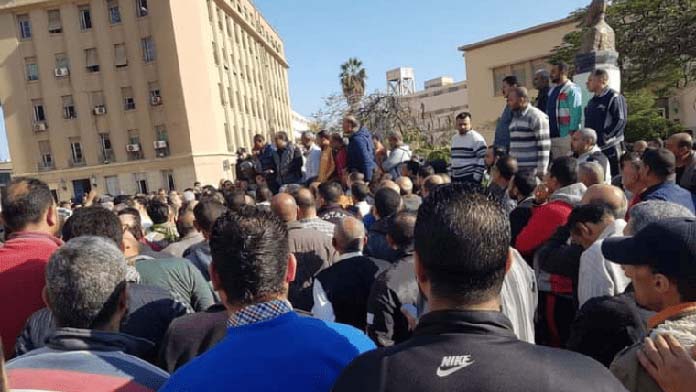Thousands of workers at Egypt’s Mahalla Spinning and Weaving Company have won pay rises after a week-long strike.
The government’s business sector minister conceded a rise to 6000 Egyptian pounds ($185 a month).
Egypt’s repressive President Abdul Fattah al-Sisi recently announced a rise in the minimum wage for state workers to 6000 Egyptian pounds. Many workers are paid less than this and Mahalla workers headed up a drive to win a wage rise.
Women workers began the strike on 22 February and it then spread to large sections of male workers at the company that employs 14,000 people.
Bosses thought the cost of living squeeze and the fear of job losses would shatter the walkout. Six workers were arrested and face charges of terrorism. But strikers stood firm and refused to give in.
One worker said, “Instead of responding to our legitimate requests, the company deprives us of our salaries and uses the weapon of starvation as if we were in Gaza.”
The Egyptian Revolutionary Socialists group said, “The Mahalla strike clearly announces that Egypt’s workers reject the current starvation policies, and that if these policies have been passed by the sword of repression during the past period, then remaining silent about them is no longer possible.
“Huge salaries are paid to senior state employees in the presidential office, governors, judges, army and police officers.
“A maximum limit must be set for the wages of these pashas (elites) to provide the financial resources necessary to set a minimum wage of ten thousand pounds a month.”
Inflation in Egypt is close to 40 per cent, plunging many Egyptians near or under the poverty line.
Mahalla was the detonator of a major wave of strikes which fed into the 2011 Egyptian Revolution.
Ruling classes everywhere will fear economic and political revolt against the Arab regimes.
If Egypt’s workers and poor were in command and unleashed as a real solidarity force alongside the Palestinians, they would tear down the wall with Gaza.
They could inspire insurrection in other countries such as Jordan, Lebanon, Iran and Syria.
This could make it impossible for imperialism to sustain its Israeli watchdog.
By Charlie Kimber, Socialist Worker UK
Sign and circulate the petition here calling for the release of strikers who are facing charges after arrests during the strike






